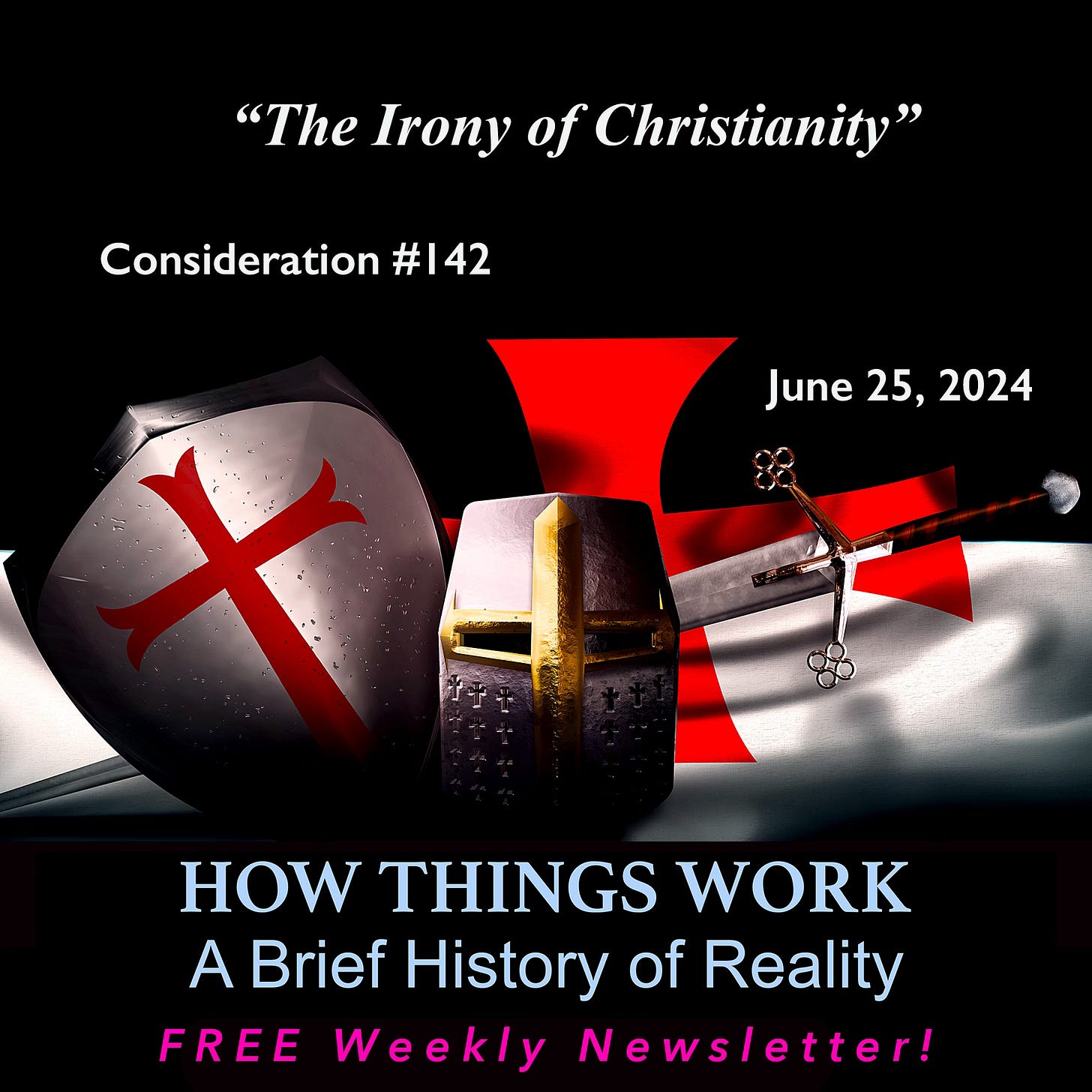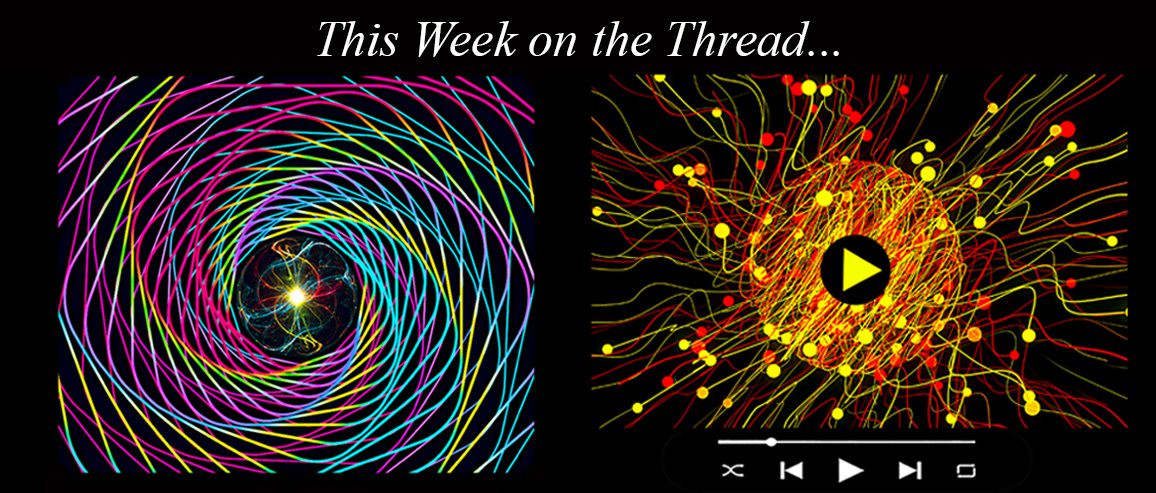Be A Part of the Conversation!
Tuesday June 25, 2014
“The Book of History is the Bible of Irony.”
– George Saintsbury
PREFACE
Welcome Everybody!
It could be argued that the Bible is a book of ironies. This tendency continues with the birth of Christianity. The new radical sect of “Jewish Christians” found themselves at odds with the two critical power centers of their time in Jerusalem: Rome and the Sanhedrin. In addition, schisms within the new “Christian community” created factions related to the “true” teachings of Jesus. Was “Christianity” a new sect of Judaism or a completely new religion open to everyone?
“Ironically, the destruction of Jerusalem and the Second Temple by Rome in 70 CE also destroyed the ‘Jerusalem church’ of Christians…”
The center of the new “Christian church” was Jerusalem. However, for many Jews, this new radical interpretation of Judaism was blasphemy. Violence against the new ideas of Jesus forced some of the apostles to separate and flee the holy city to begin spreading the new “faith” throughout the “Roman” world. However, the home base of the new religion remained in Jerusalem under the leadership of James. Ironically, the destruction of Jerusalem and the Second Temple by Rome in 70 CE also destroyed the “Jerusalem church” of Christians; as well as their influence and ideas related to the new religion.
“…most of what we think of as early Christian doctrine comes from a man who originally vowed to wipe out the blasphemous new religion…”
Ironically, most of what we think of as early Christian doctrine comes from a man who originally vowed to wipe out the blasphemous new religion and all of its adherents. A zealous Pharisee, Saul of Tarsus, gains permission from the San Hedren to follow the heretics and eliminate them once and for all. However, on his journey to eradicate the new sect of Christians he has a divine vision of the “Resurrected Christ” and immediately becomes a Christian convert, and perhaps the most influential evangelist for the new religion.
“Rome despised Christians; seeing them as a threat to their own religious values and tradition.”
However, all roads eventually lead to Rome. In the capital of paganism, the new Christian faith is not welcomed. Christians are martyred in the colosseum and crucified in the streets. Rome despised Christians; seeing them as a threat to their own religious values and traditions. Ironically, in 312 CE a Roman general named Constantine had a divine vision of “the cross,” and after winning a critical battle the next day converted to Christianity. Constantine eventually becomes the emperor of Rome; and Rome eventually converts, from paganism to Christianity.
The Bible is a book of ironies. The empirical power of Rome, responsible for Jesus’ crucifixion, becomes the empirical power that eventually establishes the most influential institutionalized religion in history based on that crucifixion: The Roman Catholic Church.
CONSIDERATION #142 – The Irony of Christianity
Rome embracing Christianity is in itself an incredible irony. Rome represented the most violent interpretation of political power in the Western hemisphere. Christianity represented a new spiritual reality based on peace, love, and forgiveness. The fundamental incongruity of these two views of reality become the foundation for the Roman Catholic Church. It is this blend of inherent inconsistency that leads to other incongruities such as “holy wars” and “inquisitions.”
However, it also inherited the physical and metaphysical roots of logic and reason that made both Greece and Rome the critical philosophical influences of the West. Ironically, it is the combination of these two seemingly incompatible influences that allowed Christianity to become the dominant religion of the West.
“This rational metaphysics supported the rational doctrine of Christianity through logical abstractions such as the Logos…”
Rationalism becomes the fundamental principle in developing a metaphysical foundation for the new “Roman based” religion. This rational metaphysics supported the rational doctrine of Christianity through logical abstractions such as the Logos, the Holy Trinity, and Holy Communion. Ironically, this same metaphysics becomes the source for a new consideration of “God’s Reality” through a rational approach called “science.” However, the Christian practitioners of this new empirical approach to rationalism and reality were considered heretics by the Church, who actively persecuted them.
“…science becomes the dominant power and influence based on its ability to achieve positive and practical results…”
Eventually, the empirical approach to rationalism, called science, becomes the dominant influence in Western thought. As the power and influence of the Roman Catholic Church diminishes new ideas and considerations regarding the nature of Christianity increase and expand. However, science becomes the dominant power and influence based on its ability to achieve positive and practical results that directly improved the quality of life for most human beings. Ironically, this new “empirical” form of understanding the nature of reality would eventually lead back to a reality completely based on rational abstractions.
“Is all of this a kind of Divine Irony commonly referred to in the West as Providence?”
Ironically, the discipline (science) specifically designed to avoid the problematic issues of mind related to religious and spiritual considerations has led us directly back to those very considerations. Therefore, the question arises, “Is all of this a kind of Divine Irony commonly referred to in the West as Providence?” Is there an ultimate destiny for human beings? Are we where we are because this is exactly where we are supposed to be? Is there a rational point for our existence? How do we fit into all of this, or do we?
The crucial question is, “Can rationalism or empiricism alone answer these questions?”
POSTSCRIPT
“Providence is an expression of the potential rational reason behind these apparent paradoxes.”
When we consider the nature of irony, we are really considering the nature of paradox. Irony is an expression of paradox. We see this paradox in the yin and yang of Taoism. We see this paradox in the Biblical narrative reflecting the duality of good and evil in the Garden of Eden. We see this paradox in the birth and implementation of Christianity. We see this paradox in the wave-particle duality of the universe. Paradox is the nature of reality. Paradox is an outcome of duality. Providence is an expression of the potential rational reason behind these apparent paradoxes.
Science and religion reflect our current paradox; now empirically and rationally manifesting itself as Artificial Intelligence.
Next week we begin our consideration regarding the ironic development of Christianity…
Expand the Conversation by Upgrading to “Reality by a Thread!”
Excerpt From This Week’s “Untangling the Knots of Reality” Podcast:
• UNTANGLING THE KNOTS OF REALITY: Podcast #101 – “Untangling the Fabric of Space-Time”
“How does gravity actually work?” “How do physical objects create dimples in space-time?” “How do these dimples in space-time create gravity?” “Why do objects in the fabric of space-time revolve around other objects in space-time?” “How do gravity and space-time form a solar system?” These are some of the knots we will attempt to untangle in this week’s podcast. That’s a lot of stuff about gravity for one podcast! So, let’s get started…
• REALITY BY A THREAD: “Artificial Intelligence Axiom #9” (Excerpt)
“There are empirical facts and empirical truths that directly stem from those facts. Feelings, emotions, and rational considerations do not apply to empirical facts. Empirical facts are non-negotiable as are the consequences resulting from them. Empirical fact: human beings need oxygen to survive. Empirical consequence: you die without oxygen. This empirical truth cannot be denied.”
• FREE PDF DOWNLOADS of Book IV: “The Cosmic Symphony – Overtones of String Theory” plus other Free Books, Discounts and Benefits. Also Gain Complete Access to all Previous Podcasts and Threads!
UPGRADE NOW!
Book V Now Available!
“Mathematics became the rational expression of a non-physical reality that everyone could agree on. Science, unlike religion, was no longer subjective; mathematics had rationally objectified the non-physical world.”
(Book V – Quantum Consciousness)
Click Image to Learn More!
Book V considers the questions related to what Consciousness is, how it evolves through levels of Perception and Awareness, why each step in the process is important, where we are currently on the “Arch of Consciousness,” and how all of this connects to Artificial Intelligence. (166 pages)






